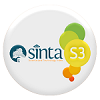Case Method and Team Based Learning : Approaches in Architectural Education on era Post Covid-19 to sustaining History of the Bandung City.
Abstract
Abstract
After pandemic covid-19, there are many more different physical and social condition in communities in the city. There are many new different or specific problems due to pressures from impact of pandemic covid-19 or many adaptations of communities toward after pandemic covid-19 situations. On education included architectural education also to be needed many reformations on respond this condition. This research is using qualitative method by research and development approach by analysis several cases on 2 lectures: Housing and Settlement, Entrepreneurship. Research and experimental development which is comprise creative and systematic work undertaken in order to increase the stock of knowledge, including knowledge of humankind, culture and society, and to devise new applications of available knowledge. From this research and analysis can find conclusion that there are many different situations on the field due to after pandemic covid 19, there are also many developments of economical rate but there are still so many conflicts of stakeholders in which have background of social dynamics after hard situation of 3 years of the most difficult situations. From this research the students can learning by case method and team-based method to respond those of situations, as an exercise to handle the same situations after they have graduated from the university.
Keywords : Architecture Education, Case Method-Team Based Learning,History of the City, and History of the Community
Keywords
Full Text:
PDFReferences
Alberti, A (2004). Entrepreneurship education: notes on an ongoing debate. In 14th Annual IntEnt Conference. University of Napoli Federico II, Italy.
Altman, I. (1980). Culture and environment. California: Brooks/Cole Publishing
Anthony, K. (2002) Designing for diversity; implications for architectural education in the twenty-first century. Journal of Architectural Education, 55(4), 257-267.
Arasti, Z., Falavarjani, M. K., & Imanipour, N. (2012). A Study of Teaching Methods in Entrepreneurship Education for Graduate Students. Higher education studies, 2(1), 2-10.
Blower, A. (1993). Planning for sustainable enviroment. Earthscan Publication Ltd.
Busono, R. T., Surasetja, R. I., & Hartati, R. D. S. (2019). Our City is Our Responsibility: Improving the Quality of Bandung’s City Open Space through Community Participation. Journal of Architectural Research and Education, 1(1), 1-9.
Cooper, R. (2009). Designing sustainable cities. Willey-Blackwell.
Dahalan, S. C., Ahmad, A. R., & Seman, A. A. (2020). Higher Order Thinking in the Content Knowledge of History Lesson in Malaysia. Historia: Jurnal Pendidik dan Peneliti Sejarah, 3(2), 75-80.
Fayolle, A. (2009). Entrepreneurship Education in Europe: Trends and Challenges, OECD LEED Programme, universities, innovation and entrepreneurship. Good practice workshop. [Online] Available:http://www.oecd.org/dataoecd/11/36/43202553.pdf
Glasser, D. (2000). Reflections on architectural education. Journal of Architectural Education, 53(4), pp. 250-252.
Hardin, R., Bhargava, A., Bothner, C., Browne, K., Kusano, S., Golrokhian, A., ... & Agrawal, A. (2016). Towards a revolution in sustainability education: Vision, architecture, and assessment in a case-based approach. World Development Perspectives, 1, 58-63.
Purwanto, B. (2019). Perspektif historis kesadaran kebangsaan dan kemerdekaan Indonesia berdimensi kebudayaan. Historia: Jurnal Pendidik dan Peneliti Sejarah, 2(2), 123-134.
Wang, J. (2005, June). Reform of architectural engineering education in taiwan: contexts, opportunities, and concerns. In 2005 Annual Conference (pp. 10-1066).
Yosita, L. (2019). Our city is our responsibility: improving the quality of bandung’s city open space through community participation. Journal of Architectural Research and Education, 1(1).
DOI: https://doi.org/10.17509/historia.v6i1.58365
Refbacks
- There are currently no refbacks.
Copyright (c) 2024 Historia: Jurnal Pendidik dan Peneliti Sejarah
INDEXED
TOOLS

This work is licensed under a Creative Commons Attribution-ShareAlike 4.0 International License.
Alamat Redaksi: Gedung Numan Soemantri, FPIPS UPI, Departemen Pendidikan Sejarah, Lantai 2, Jl. Dr. Setiabudhi No 229 Bandung, 40154






